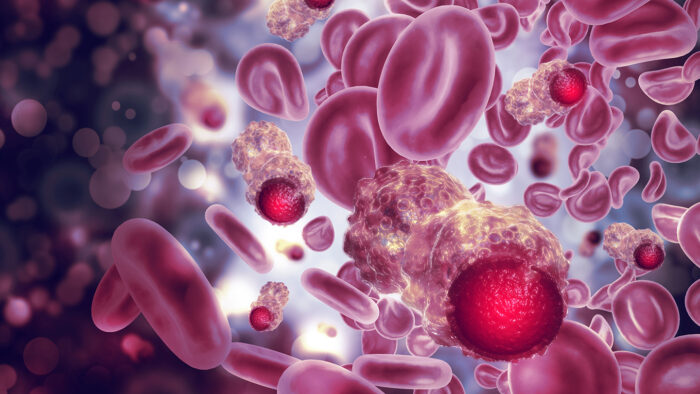
Receiving a cancer diagnosis can be an incredibly challenging and overwhelming experience for anyone. During these difficult times, showing love and support to someone battling cancer can make a significant difference in their journey. Your presence, understanding, and willingness to lend a helping hand can provide comfort and strength to your loved one.
Understanding the Diagnosis: Learning About Cancer
The first step in cancer support is to educate yourself about the disease. Familiarize yourself with the basics of cancer, its types, stages, and treatments. This knowledge will enable you to have more informed discussions with your loved ones and better understand their experiences. You can consult reputable sources such as cancer organizations, medical websites, or books written by experts to gather accurate and reliable information.

Being a Compassionate Listener: Providing Emotional Support
One of the most powerful ways to show your love is by being a compassionate listener. Cancer can bring forth a range of emotions for the person going through it, including fear, anxiety, sadness, and anger. Allow your loved one to express their feelings, fears, and concerns without judgment. Offer a safe space for them to share their emotions openly, and validate their experiences. Sometimes, just lending an empathetic ear can provide immense comfort and relieve emotional burdens. Avoid dismissing or minimizing their feelings, and instead, provide encouragement and reassurance.
Offering Practical Assistance: Helping with Daily Tasks
Cancer treatment can be physically exhausting, leaving your loved one with limited energy to accomplish daily tasks. Offering practical assistance, such as grocery shopping, meal preparation, or house cleaning, can be a tremendous help. Take the initiative to offer specific tasks you can assist with, and be reliable in fulfilling your commitments. Small acts of service can go a long way in easing their burden and allowing them to focus on their recovery.

Creating a Supportive Environment: Making Their Space Comfortable
Create a calming and supportive environment for your loved one. Consider their needs and preferences when arranging their living space. Ensure their surroundings are comfortable, clutter-free, and filled with items that bring them joy. Provide cozy blankets, soft pillows, and soothing colors to create a peaceful atmosphere. Additionally, consider any necessary modifications to accommodate their physical needs, such as installing handrails or adjusting furniture height. This nurturing environment can contribute to their overall well-being and provide a sense of peace and tranquility during their challenging journey.
Sending Thoughtful Messages: The Power of Words and Encouragement
Never underestimate the power of thoughtful messages. Sending cards, letters, or emails expressing your love, encouragement, and support can brighten your loved one’s day. Remind them that they are not alone in their battle and that you are always there for them. Share inspirational quotes or anecdotes that uplift their spirits and give them hope. These heartfelt messages can serve as a beacon of light, offering strength and comfort during challenging times.

Practical Ways to Help: Providing Transportation or Meal Prep
Offer practical assistance by helping with transportation to medical appointments or treatment sessions. Accompanying your loved one during these visits can provide them with emotional support and alleviate any anxiety they may be feeling. Ensure they arrive on time and help them navigate the logistics of scheduling and managing their medical care. Additionally, preparing healthy meals or organizing a meal train with friends and family can ensure they receive proper nutrition while minimizing their responsibilities. Coordinate with others to ensure a consistent flow of meals, taking into account any dietary restrictions or preferences.
Respectful Boundaries: Understanding Their Needs for Privacy
Respecting your loved one’s boundaries is crucial during their cancer journey. Understand that they may need time alone or might not feel like discussing their condition at certain times. Always ask for permission before sharing any personal information with others, as they may want to maintain their privacy. Respect their wishes regarding visitors, and communicate to friends and family members about the importance of privacy and sensitivity. Respecting their boundaries demonstrates your love and consideration for their emotional well-being.

Including Them in Social Activities: Maintaining Normalcy
Engaging individuals with cancer in social activities is essential as the disease can often lead to feelings of isolation and disconnection. By inviting them to gatherings, outings, or virtual events, you provide them with opportunities to maintain a sense of normalcy and belonging. Consider their physical limitations and preferences when planning activities, and be mindful of their energy levels and any restrictions due to treatment. These inclusive gestures serve as reminders that they are valued members of their social network, fostering a profound sense of support, love, and community during their cancer journey.
Maintaining social connections can have a profound impact on the emotional well-being of individuals with cancer. By including them in social activities, you not only help alleviate their feelings of isolation but also provide a space for them to share their experiences, receive encouragement, and gain strength from the support of their loved ones. These inclusive gestures help them feel connected, uplifted and reassured that they are not alone in their journey, ultimately contributing to their overall resilience and quality of life during this challenging time.
Nurturing Self-Care: Encouraging Physical and Emotional Well-being
Encourage your loved one to prioritize self-care. Cancer treatment can take a toll on their physical and emotional well-being. Suggest activities that promote physical wellness, such as gentle exercises, guided meditation, or relaxation techniques. Encourage them to engage in activities they enjoy, such as reading, listening to music, or pursuing creative outlets.
Recommend support groups or therapy sessions where they can connect with others going through similar experiences. Remind them to take breaks, listen to their bodies, and engage in activities that bring them joy and peace. By emphasizing self-care, you empower them to prioritize their health and well-being throughout their cancer journey.

Conclusion
Supporting someone who is dealing with cancer can be a difficult, yet rewarding experience. Showing your love and support to these individuals in any way possible is essential to their emotional well-being during this tough time. From small daily gestures like sending kind messages or offering help with errands, to larger demonstrations of care such as volunteering at a cancer charity or organizing an event on behalf of the individual, there are countless ways that you can show your love and compassion for those affected by cancer. Together we can make a difference, one act of kindness at a time.











